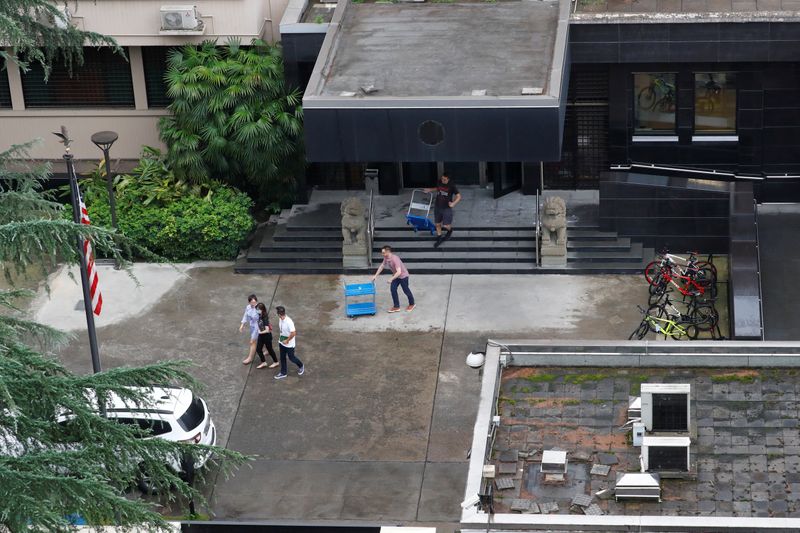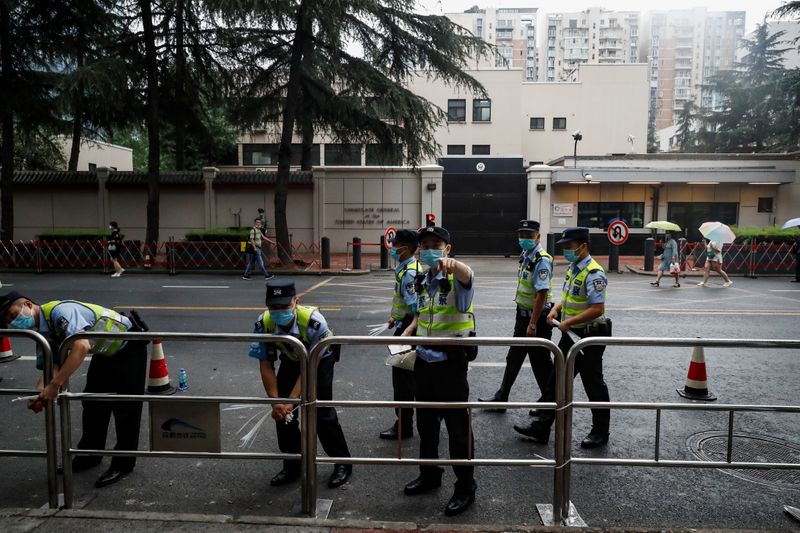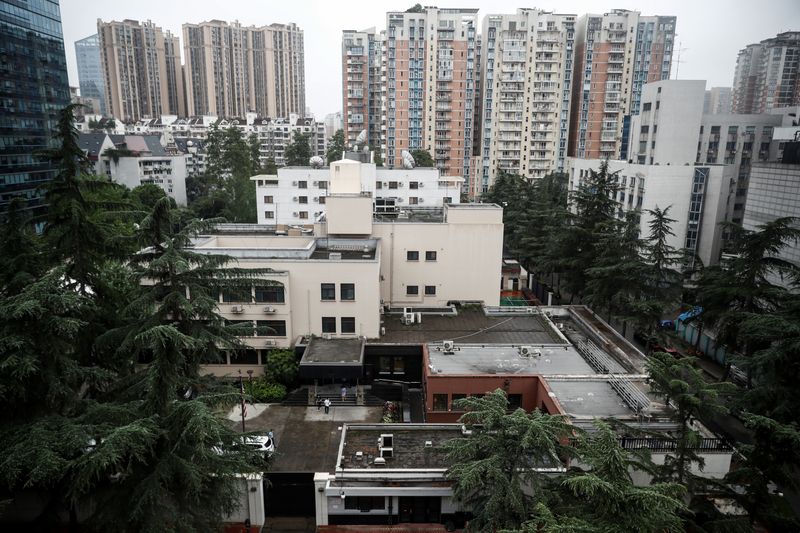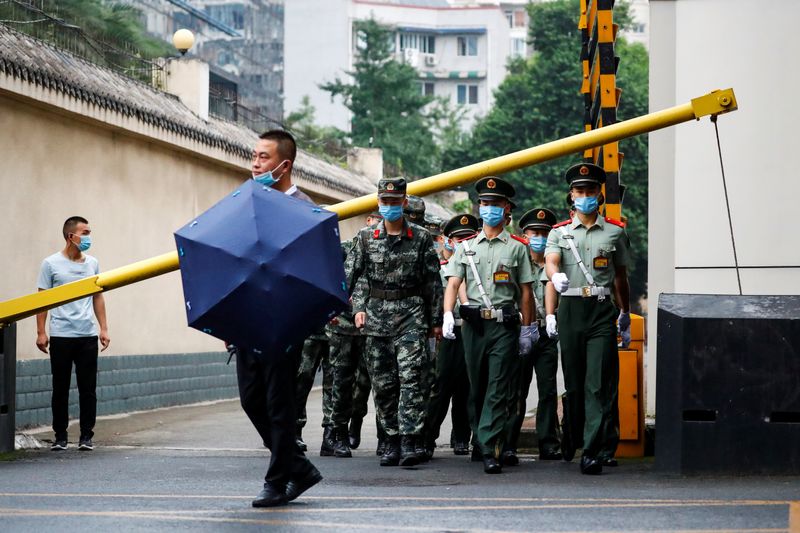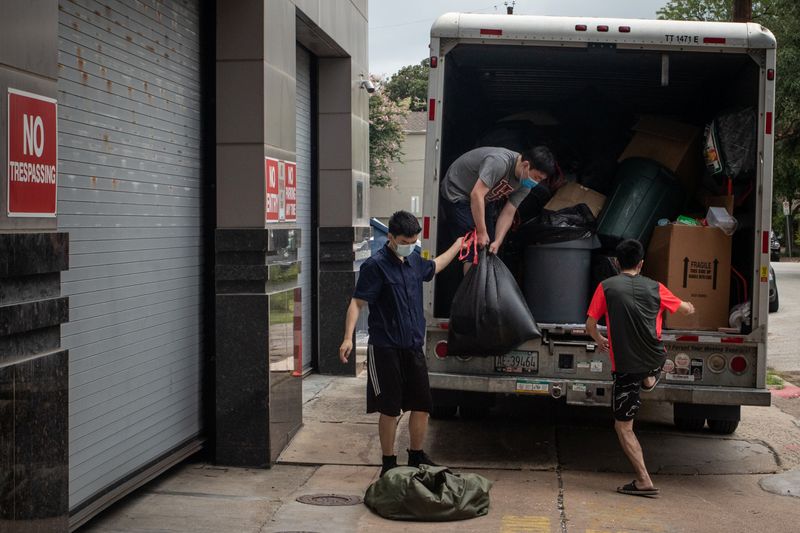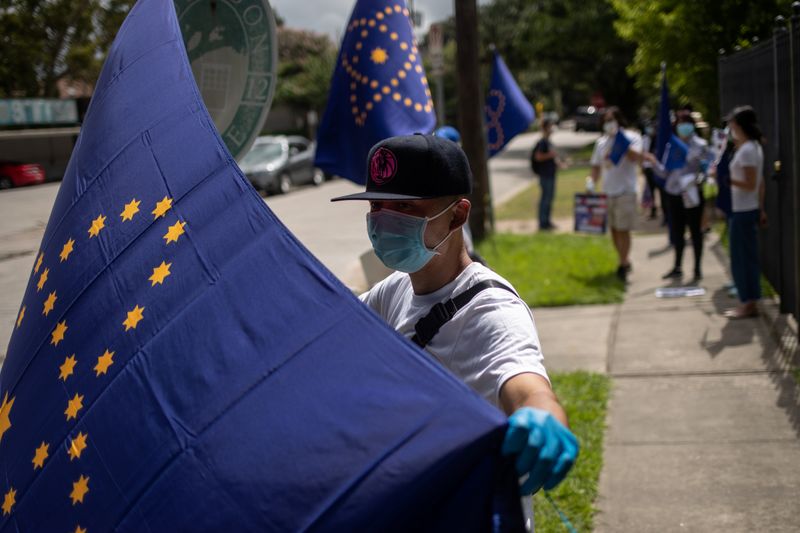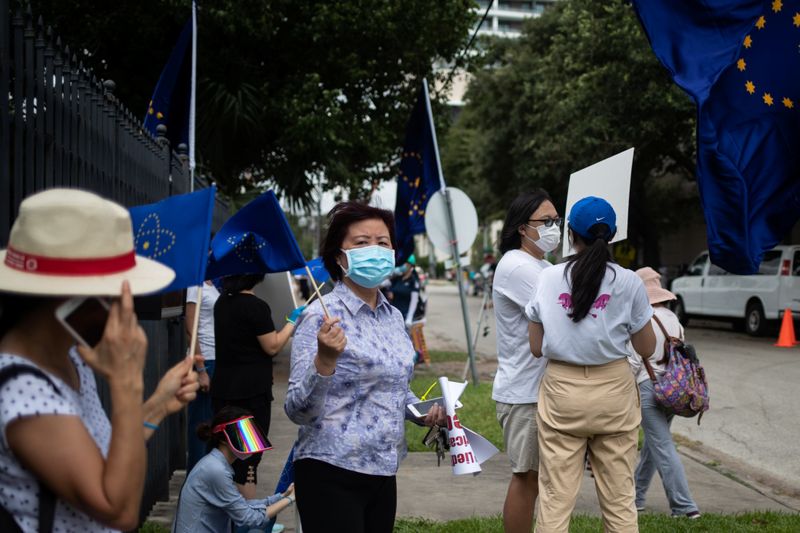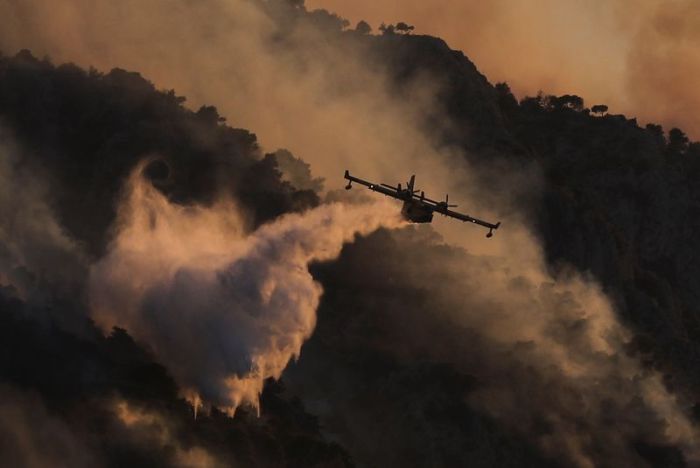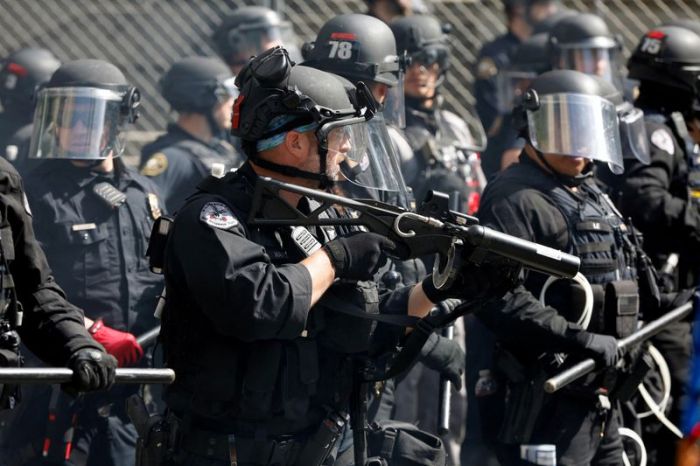BEIJING/HOUSTON (Reuters) – China on Friday ordered the United States to close its consulate in Chengdu in response to a U.S. order for China to shut its Houston consulate, where staff packed up belongings watched by jeering protesters amid a sharp deterioration in relations between the world’s two largest economies.
The order to close the consulate in Chengdu, a city in southwestern China, continued Beijing’s recent practice of like-for-like responses to Washington’s actions.
Beijing had threatened retaliation after the Trump administration gave it 72 hours – until 4 p.m. on Friday – to vacate its consulate in the Texas city, and had urged Washington to reconsider.
U.S. Secretary of State Mike Pompeo said on Thursday the consulate had been “a hub of spying and intellectual property theft” and Washington and its allies must use “more creative and assertive ways” to press the Chinese Communist Party to change its ways.
Shortly after a U.S. closure order for the mission took effect at 4 p.m., a group of men who appeared to be American officials were seen forcing open a back door of the Houston consulate.
The men did not respond when asked who they were by reporters. Earlier, the same group of men was seen padlocking a door on another side of the building.
After the men went inside, two uniformed members of the U.S. State Department’s Bureau of Diplomatic Security arrived to guard the door. They also did not respond to questions.
A Reuters witness saw consulate staff exiting the building shortly after 4 p.m. and leaving in vehicles before the back door was forced open.
The Chinese embassy and the U.S. State Department did not immediately respond to requests for comment on this activity.
Senior U.S. officials said earlier that activity by China’s diplomatic missions was occurring all over the country, but that out of the Houston consulate went well beyond what was acceptable.
A senior State Department official also linked espionage activity from that consulate to China’s pursuit of research into a vaccine for the new coronavirus.
About 100 Chinese activists gathered at the consulate on Friday, shouting slogans denouncing communism and heckling staff.
Some held American flags as they watched workers loading belongings from the five-story building into trucks.
Protesters cheered when a tractor trailer circled the building with giant signs that read: “Freedom from Communism,” and “God Bless America.”
Relations between Washington and Beijing have deteriorated this year to what experts say is their lowest level in decades over issues ranging from trade and technology to the coronavirus pandemic, China’s territorial claims in the South China Sea and its clampdown on Hong Kong.
China’s foreign ministry spokesman Wang Wenbin said some personnel at the Chendu consulate were “conducting activities not in line with their identities,” had interfered in China’s affairs and harmed its security interests. He did not say how.
Senior Chinese diplomat Wang Yi, who is also foreign minister, blamed Washington for the deterioration in ties.
“The current difficult situation in Sino-U.S. relations is entirely caused by the United States, and its goal is trying to interrupt China’s development,” Wang said in a video conversation with his German counterpart.
CHINESE RESEARCHER IN U.S. CUSTODY
U.S. President Donald Trump’s administration said the closing of the Houston consulate was aimed at protecting American intellectual property and personal information.
“We urge the CCP (Chinese Communist Party) to cease these malign actions rather than engage in tit-for-tat retaliation,” said John Ullyot, a spokesman for the White House National Security Council.
In a related case, a senior U.S. Justice Department official said a Chinese researcher who took refuge at China’s consulate in San Francisco was taken into American custody on Thursday.
He said Juan Tang was part of a network of associates who concealed their military affiliation when applying for visas.
The U.S. consulate in Chengdu was given 72 hours to close, or until 10 a.m. on Monday, the editor of China’s Global Times tabloid said on Twitter.
The consulate opened in 1985 and has almost 200 employees, including about 150 locally hired staff, according to its website. It was not immediately clear how many are there now after U.S. diplomats were evacuated from China because of the pandemic.
Global share markets fell after the announcement, led by a heavy drop in Chinese blue chips, which fell 4.4%, while the yuan hit a two-week low. [MKTS/GLOB]
Wall Street retreated, heading into the weekend with a broad sell-off due to weak earnings, surging coronavirus cases and concerns about U.S.-China ties. The Dow Jones Industrial Average .DJI ended down 182.44 points, or 0.68%, at 26,469.89.
A source had told Reuters China was considering shutting the U.S. consulate in Wuhan, where Washington withdrew staff as the coronavirus outbreak raged.
“The Chengdu consulate is more important than the Wuhan consulate because that is where the U.S. gathers information about Tibet and China’s development of strategic weapons in neighboring regions,” said Wu Xinbo, an American studies expert at Shanghai’s Fudan University.
Chengdu was less important though for economic activity than U.S. consulates in Shanghai, Guangzhou and Hong Kong.
Jonathan Pollack of the Brookings Institution think tank said Chengdu was the only U.S. consulate deep in China’s interior and closing it would also affect Washington’s ability to monitor the Sino-Indian border and other sensitive locations, including Xinjiang.
However, he noted that China’s foreign ministry had avoided the sort of “trash talking” of some recent U.S. statements.
“The real question now is whether the events of the past few days are a one off, or a precursor of other steps the U.S. or China might undertake that would entail even larger dangers and risks in U.S.-China relations,” he said.
(Reporting by Tony Munroe and Yew Lun Tian in Beijing; additional reporting by Huizhong Wu and Judy Hua in Beijing; Gary McWilliams and Adrees Latif in Houston; David Brunnstrom, Doina Chiacu and Daphne Psaledakis in Washington; Rama Venkat in Bengaluru; Tom Westbrook in Singapore; Writing by Michael Perry, Timothy Heritage and David Brunnstrom; Editing by Jonathan Oatis, Grant McCool and Daniel Wallis)

